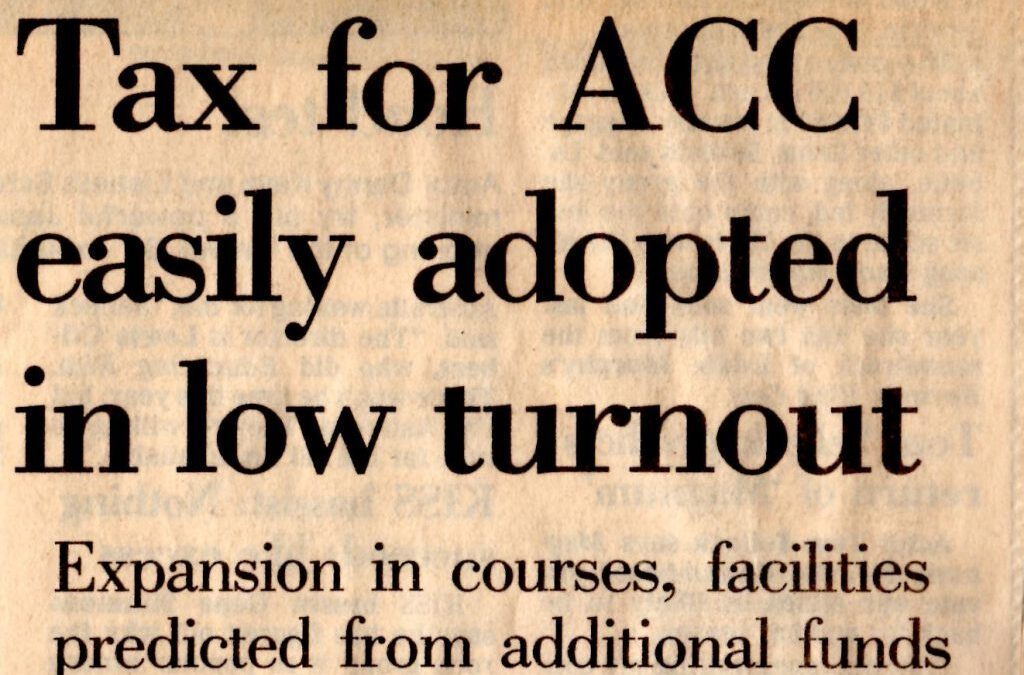After the college operates without a tax base for almost 14 years, ACC district voters grant taxing authority to ACC. Other school districts and the City of Austin later join the taxing district, and the combination of state and local funding helps ACC keep tuition and fees affordable.
A Look Back…
The margin of victory in the election, 54.2 percent for and 45.8 percent against, didn’t exactly resemble a landslide, but it was big. ACC was the only public community college in Texas that did not enjoy financial support from its local community, and the state legislature had threatened to withhold funding if the property-owners in ACC’s district didn’t pitch in with local tax revenue.
Without state funding, ACC would have been diminished or perhaps forced to increase tuition and fees to unaffordable levels for many students. By election day, a majority of the voters agreed that the college was worth 5 cents per year for every $100 worth of real property they owned, even as the state’s petroleum-based economy struggled. ACC Board Chairman Royce Faulkner hailed the election as a “major victory for the future of education in our city.”
ACC’s President Dan Angel deserved much of the credit for the successful campaign, but many others helped make a critical difference. State Representative Wilhelmina Delco and State Senator Gonzalo Barrientos endorsed the initiative. Local consultant Peck Young designed a plan targeting businesses, especially those that relied on ACC’s workforce training programs.
